26 January 2017
We were excited to hear the rumours that Southern Rail could be brought into public ownership - even if only as a short term measure, and even if the government is denying it:
A Department for Transport spokesman told the Mirror: "There are no plans to strip Govia Thameslink Railway of its franchise. This is pure speculation".
Maybe it is just speculation, but the government knows - as does everyone who relies on unreliable Southern Fail - that a solution is needed. The company has been locked in dispute with the rail unions over the move to driver-only trains. Aslef and the RMT believe it won't be safe for passengers if the company goes ahead with its plan to reduce staff.
The resulting chaos is hurting passengers. The national rail passenger survey has just confirmed that Southern is the country's worst performing rail franchise with the lowest score for passenger satisfaction.
We asked Survation to find out what the public thinks should happen now - the results were covered in the Mirror. Just one in five people think that Southern is suitable to run its train services - over 50% think it's unsuitable.
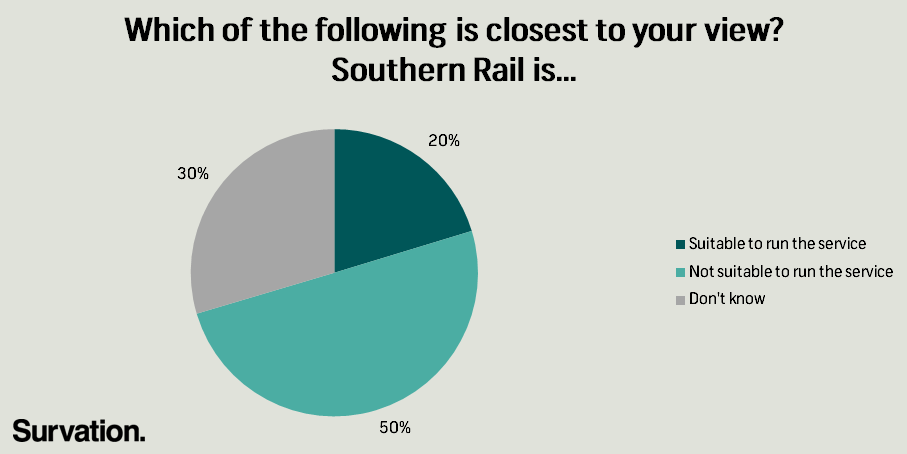
For those who said Southern Rail should be stripped of the franchise, Survation asked what should happen instead. Only 1 in 5 of that group think Southern should be replaced by another private company whilst 76% want either Southern alone, or the whole rail network, to be brought into public ownership.
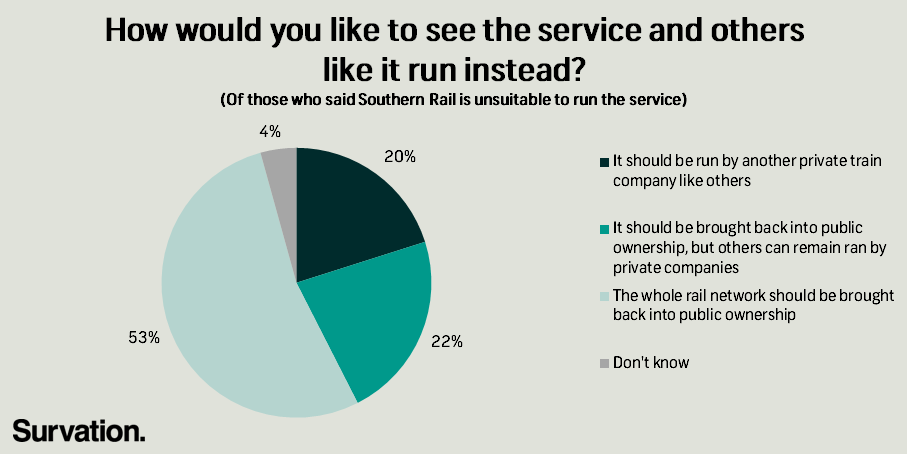
Isn't it time for the government to consider public ownership as the answer? When the East Coast line was run in public ownership from 2009 until 2014 it was the most efficient franchise in the UK and returned £1 billion to the Treasury.
“Money spent on our railways should be used to improve services and keep fares down, not to line the pockets of train companies. Under public ownership, the East Coast Mainline delivered for passengers and taxpayers alike, and there’s no good reason for the government not to replicate that success across the network. So long as Southern services remain in private hands, the message to passengers from the government remains that defending privatisation is more important than providing reliable, comfortable and affordable public rail services. Passengers are demanding that services be run in the public sector as a public service, and it’s time the government listened."
Andy McDonald MP, Labour’s Shadow Secretary of State for Transport
“As the Southern crisis escalates it’s become increasingly clear that this private firm has utterly failed to manage this key piece of infrastructure which hundreds of thousands of people rely on. My constituents are increasingly angry, stressed and anxious by the endless incompetence of Southern. It’s no wonder that over 75% of people want to see public ownership of our railway. For the Government to do nothing in the face of such failure would show that they are ideologically committed to the failed privatisation project, rather than seeking what’s best for passengers. We need a modern railway, owned by the people who use and run for public good, not private profit.”
Caroline Lucas, Green Party co-leader and MP for Brighton Pavilion
There are lots of great reasons to bring the whole rail network into public ownership. Let's start with Southern.









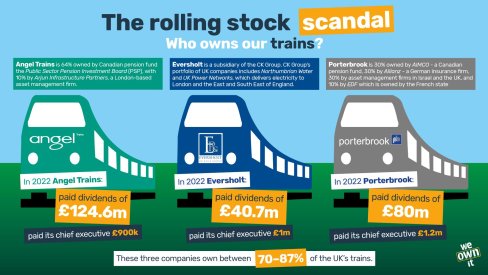
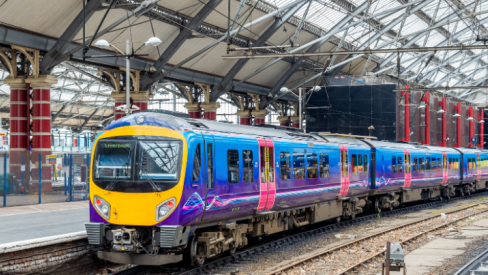
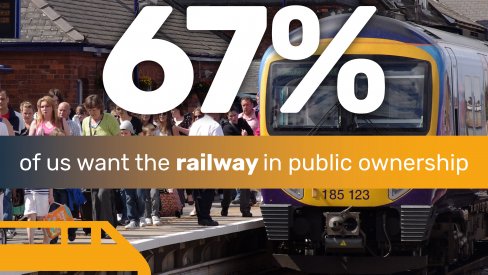

Comments
Phil replied on Permalink
Govia Thameslink Railway and it's puppetmasters in the DfT are a stain on the nation.
David Bradbury replied on Permalink
People before private profit.
Sheila Croskell replied on Permalink
The whole rail network throughout the county should be brought back into public ownership. All profits put back into the system to ensure an effective high class service for all passengers and freight.
An effective transport system enables business to flourish, and therefore the whole nation will eventually benefit from job creation,and more tax revenue.
Alan G. Garrett replied on Permalink
Beeching was either short-sighted, and possibly forgivable, or a self and party serving twunt. The Railways needed attention but not his kind of book-keepers bottom line economics. His cost-saving of closing the so-called non-profit branch lines cut the lifeblood of the main lines, they then suffered too.
Add new comment